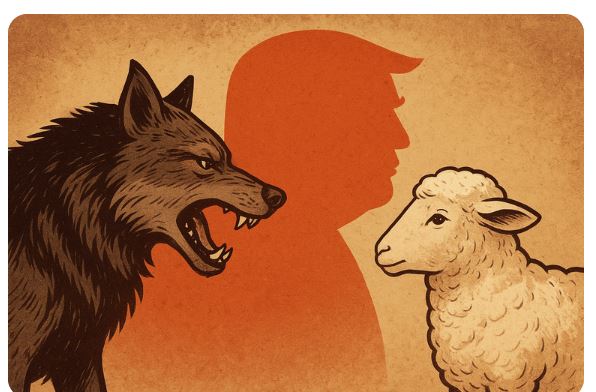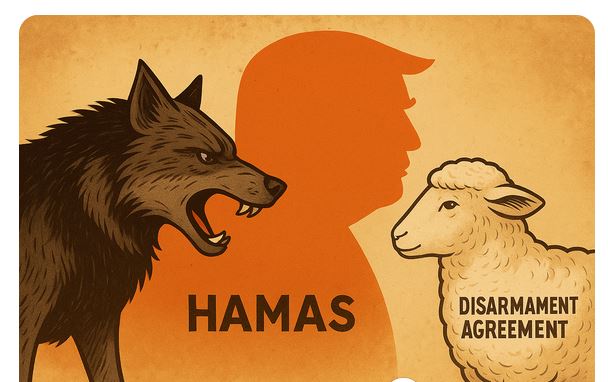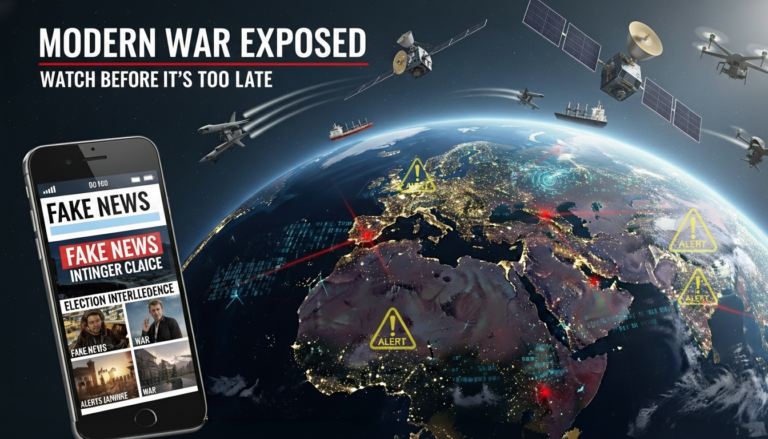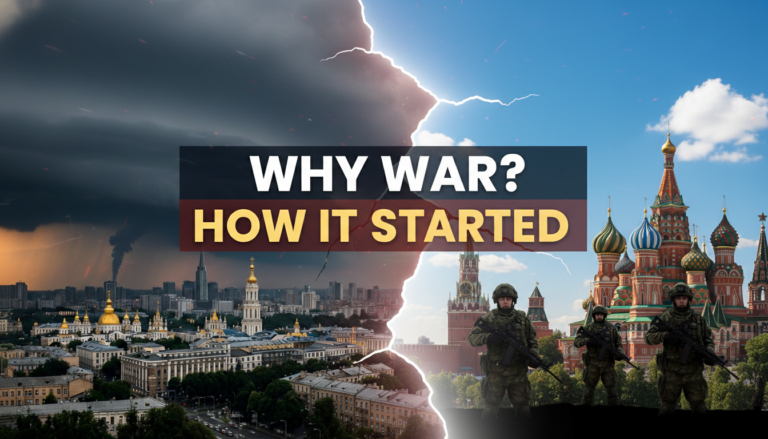
Trump’s Warning to Hamas — The Wolf and the Lamb Analogy
Trump’s Warning to Hamas — The Wolf and the Lamb Analogy
When former U.S. President Donald Trump declared that “if Hamas does not disarm, we will disarm them by force,” the words echoed far beyond Washington. They carried the tone of authority — and threat — that defines the politics of power. But behind this warning lies an old story, one that still explains the moral tension of our world: the fable of the Wolf and the Lamb.
A Modern Story of Power
According to reports, Trump spoke to journalists at the White House, insisting that Hamas must completely disarm or face U.S. action. He linked the demand to the partial return of hostages and the fragile peace deal brokered in Egypt. His message was simple — disarm voluntarily or be disarmed by force.
The statement sounded decisive, yet the deeper meaning is worth exploring. In the classic fable, a wolf and a lamb drink from the same stream. The lamb, standing downstream, is accused by the wolf of muddying the water. The lamb pleads innocence — the wolf’s logic makes no sense. But reason doesn’t matter. The wolf only wants an excuse to attack.
In many ways, the rhetoric around Hamas and Gaza feels similar. The powerful side sets the terms, defines guilt, and justifies force — even when the weaker party’s position may not threaten the powerful directly.

The Wolf and the Lamb in Modern Politics
The world’s power structures often resemble the wolf’s behavior. Whether it’s military action, economic sanctions, or diplomatic pressure, the stronger side claims moral authority — defending peace, ensuring security, or fighting terrorism. The weaker party, meanwhile, is forced into a defensive posture, its voice drowned out by global narratives controlled by those who hold power.
Trump’s warning fits this pattern. It carries an implicit message: We decide when peace exists, and we decide who deserves punishment.
The fable’s moral is clear — when the strong control the narrative, justice easily becomes a tool of convenience.
Disarmament or Domination?
Disarmament, in theory, should mean peace. But in practice, when one side is forced to lay down arms under threat, it rarely leads to stability. True peace cannot be imposed; it must be negotiated. Otherwise, it turns into submission — the lamb surrendering because resistance is impossible.
Hamas, for all its controversies and violence, represents a political reality in Gaza that cannot be erased by command. Forcing disarmament through pressure or violence risks worsening the humanitarian crisis and igniting new cycles of revenge. History has shown that coercion may silence guns temporarily but never silences anger.
The Danger of the Wolf’s Logic
The wolf’s logic — that power justifies action — remains seductive to nations. Yet it undermines the very order that keeps the world safe. If every powerful country claimed the right to “disarm” others by force, chaos would replace law, and might would become the only truth.
Trump’s words may have been meant as diplomacy through strength, but they reveal how fragile peace becomes when justice is defined by those who can enforce it.
Conclusion: Between Power and Principle
The fable of the Wolf and the Lamb ends with tragedy — the lamb, though innocent, becomes the victim. In international politics, the lesson is timeless: when reason fails, power takes its place.
For peace to mean more than silence after violence, justice must guide action — not dominance. Otherwise, we will keep retelling the same story, where the strong rewrite morality to fit their strength, and the weak are left drinking downstream, blamed for muddy waters that were never theirs.





